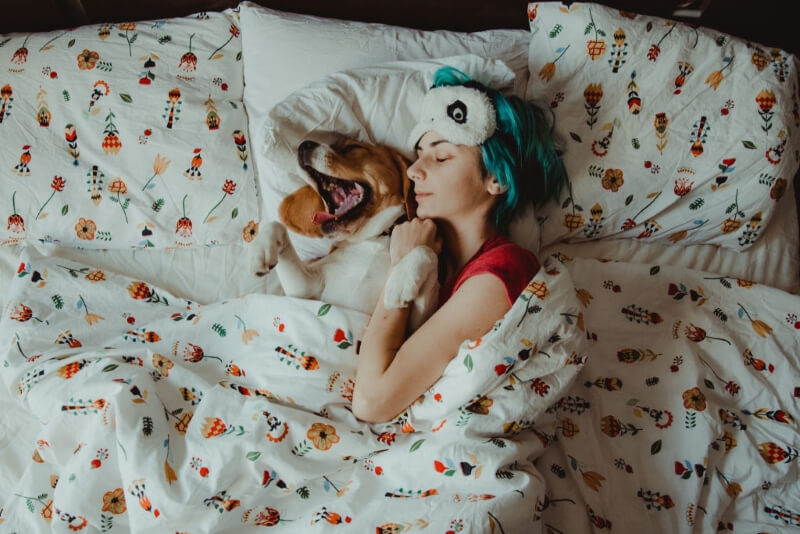If you've started working at home in the last few years, You may be amazed to discover how much time your dog is sleeping. It's enviable. According to Dr George Melillo, Co-founder and Chief Veterinary Officer at Heart + Paw, it's normal. The average dog will spend about half of the day resting or sleeping. That's right, 12 to 14 hours of complete rest and rest.
Your pet's sleeping routine differs based on factors like their level of activity, age, and size. Dr Melillo explains that puppies require more rest than adults, and most large dogs require more rest than smaller breeds. It is even different according to species. For instance that a golden retriever needs less sleep than a bulldog. ( Here are some other breeds to think about for those who, like you, prefer to relax.)
"A large part of this has to do with how dogs sleep and sleep, which is different from how we sleep, as dogs are less likely to spend time in REM-rapid eye movements sleep than human beings," Dr Melillo explained. Dogs can enter the REM cycle following around 20 minutes of sleep. It turns out that the time spent dreaming is dependent on the size of the dog, the duration of dreams ranging between one and five minutes.
The activity level is another crucial aspect of a dog's sleeping routine. "Dogs generally be prone to sleep excessively due to boredom or because of their lifestyles," says Dr Melillo. Therefore, it's crucial to ensure that your pet gets a sufficient amount of physical exercise and mental stimulation each day.
Is it possible for dogs to be too tired? Absolutely. Apart from signalling boredom, it may also signal more serious issues. "If your dog is sleeping longer than usual, it could be an indication of an illness or weakness that must be discussed with the vet," Dr Melillo states.
This isn't the only indication of a problem, however. Some dogs, as human beings, the issue is that they aren't receiving adequate sleep. "Some dogs have anxiety issues that make it difficult to sleep," Dr Melillo declares. "Others might be experiencing disruptions in their routine or environment. In certain instances, a pet may be suffering from pain which affects their ability to be comfortable."
Do you have any questions about where they should rest to ensure the maximum comfort of their pet? The answer is all personal, just for both you and your pet. Dogs who share their beds with their canine pals will be most likely be awake late at night, but the emotional peace that a close relationship can provide could offset adverse effects. If your dog seems restless or co-sleeping triggers certain negative behaviours, perhaps give your pet their separate area in the space.
In some instances, the reason for getting too much or not enough sleeping may be apparent and easily solvable: a relocation, a shift in your schedule or a lifestyle change. However, if there's no obvious explanation, don't be afraid to talk to your veterinarian.



Share and get 15% off!
Simply share this product on one of the following social networks and you will unlock 15% off!